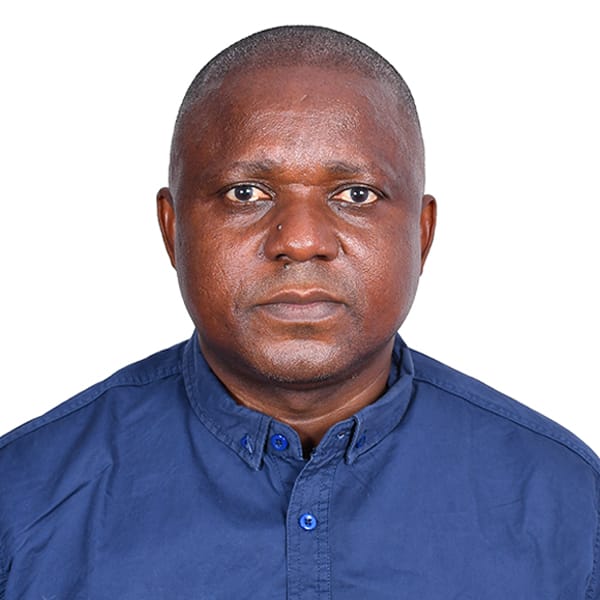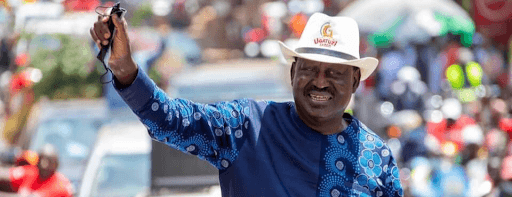
 Victor Bwire./HANDOUT
Victor Bwire./HANDOUT
Newsrooms in Kenya are currently undergoing significant change, both in terms of professional practice and operating environment, that climaxed with the public protests related to governance issues.
Tensions between the media, some
critics and the government have escalated to worrying levels, while access to
credible information from public agencies has diminished, allowing information
manipulation and disinformation to flourish.
While there is a lot of generalisation and blanket condemnation of news coverage and media framing of some national issues or what people commonly call ‘sensational” headlines, many times the judgements are made with feelings devoid of facts.
The judgement by the critics is mainly mixed with business, ownership, and political underpinnings that are not professional accountability demands on the media.
You hate or love them, journalists must be respected and allowed to professionally execute their work, without scorn, ridicule, feelings devoid of honest critique.
Where one feels aggrieved, there are legitimate redress mechanisms in the country, away from insults and general condemnation.
Misplaced comparisons have been made between liberty media and digital news platforms as a way of creating credibility crisis around the media, oblivious of the fact that alternative media, which people currently associate with social media, have existed before and are not a replacement.
Things have changed in the media, including news gathering, development, packaging and distribution, audience segments, preferences, likes and consumption patterns, among others, which have made the various media channels complementary players.
But professional obligations on the part of the editorial teams remain and have even improved with the use of innovations such as artificial intelligence.
The
use of technology by journalists has pushed journalism to higher levels and is
very interesting.
Yes, journalism is undergoing changes including competition with mass information being disseminated through digital platforms, which need fact checking all the time, but such happenings happening by professional journalists are problematic.
Journalists just need to up their game and do the basics in journalism, reporting the truth.
Indeed, serious journalists and news organisations must have strong and elaborate information archives, libraries, reference materials and research units that provide facts and details of news, instead of fact-checking desks.
Media critics to erode credibility, trust, and attacks against media in general and journalists in particular have used words like “fake news” and by extension, “fact-checking” to support their arguments.
Far from it, journalism in Kenya is still defined by seeking the truth, minimising harm, acting independently when applying news values, and being accountable to the content consumers.
Establishing truth and facts about an issue, establishing facts, contextualising and more importantly, verifying the source and timing of the item are the hallmarks of professional journalism.
This is what makes journalism and is practically implemented by newsroom managers and editors through editorial discretion and professional judgement when determining news.
Its desirable to have people check and correct the media on news content, but it should be through the independent fact-checkers internally sharing with the journalists or through the public editors about mistakes in content so that the media makes the corrections, but not through the fact-checkers doing it directly publicly as its leading to threats to journalists, self-censorship, and loss of credibility and trust in the media, which is unfortunate.
For instance, the contest between government and media is well known and historical; the government has an interest in ensuring that media are usable as a tool of governance and administration for mediating ideas and philosophy that are supportive of government and for propagating official statements and decisions, as opposed to the media’s watchdog and marketplace of ideas role.
The executive and, by extension, politicians allied to the ruling political party, on the other hand, would want a media that gives them an unfettered opportunity to reach and influence the citizens to safeguard their support bases and thereby extend their tenure in power even if they are bad leaders.
The Media, on the other hand, are driven by public interest concerns and therefore prefer an operating environment that allows for access to public resources, as well as unfettered access to information and editorial independence. Such an environment requires that journalists are assured of their safety, independence and engagement.
Media criticism is
welcome as a peer review and accountability mechanism for the profession and an
assurance that people are still consuming media products.
Within this thinking, media professionals must understand and appreciate the genuine reaction by citizens when they become unprofessional and irresponsible in the performance of their duty.
To remain vehicles for informed public debates and framing of national discourse using the rights-based approach, the media must work towards creating solidarity and a common agenda for the media fraternity in the country to not only reduce the divisions in the sector, but ensure that media issues are part of the national agenda and a conducive environment is created for the media to play its role in national development unhindered.
Media in Kenya is not a rogue industry, and journalists are guided by a professional code of conduct thus, Kenyans should not seem helpless when offended by the media or journalists should feel free to complain about the mistreatment of their stories by their editors or subeditors.
The profession has enough mechanisms for self-regulation, both as an industry or at a personal level. Indeed, the best mechanism globally to raise complaints against the media—in fact, media-related breaches are civil in nature—is best handled outside the judicial/court system.
Recognising and appreciating the importance of such professional obligation, many media enterprises in Kenya have developed social media and blogging policies for journalists attached to them, to ensure that while they go online, and the associated ambiguities of their private lives and their public life, they still observe professionalism even within their private space.
Journalism is a public life and requires of its professional members to maintain decorum in their dealings.











